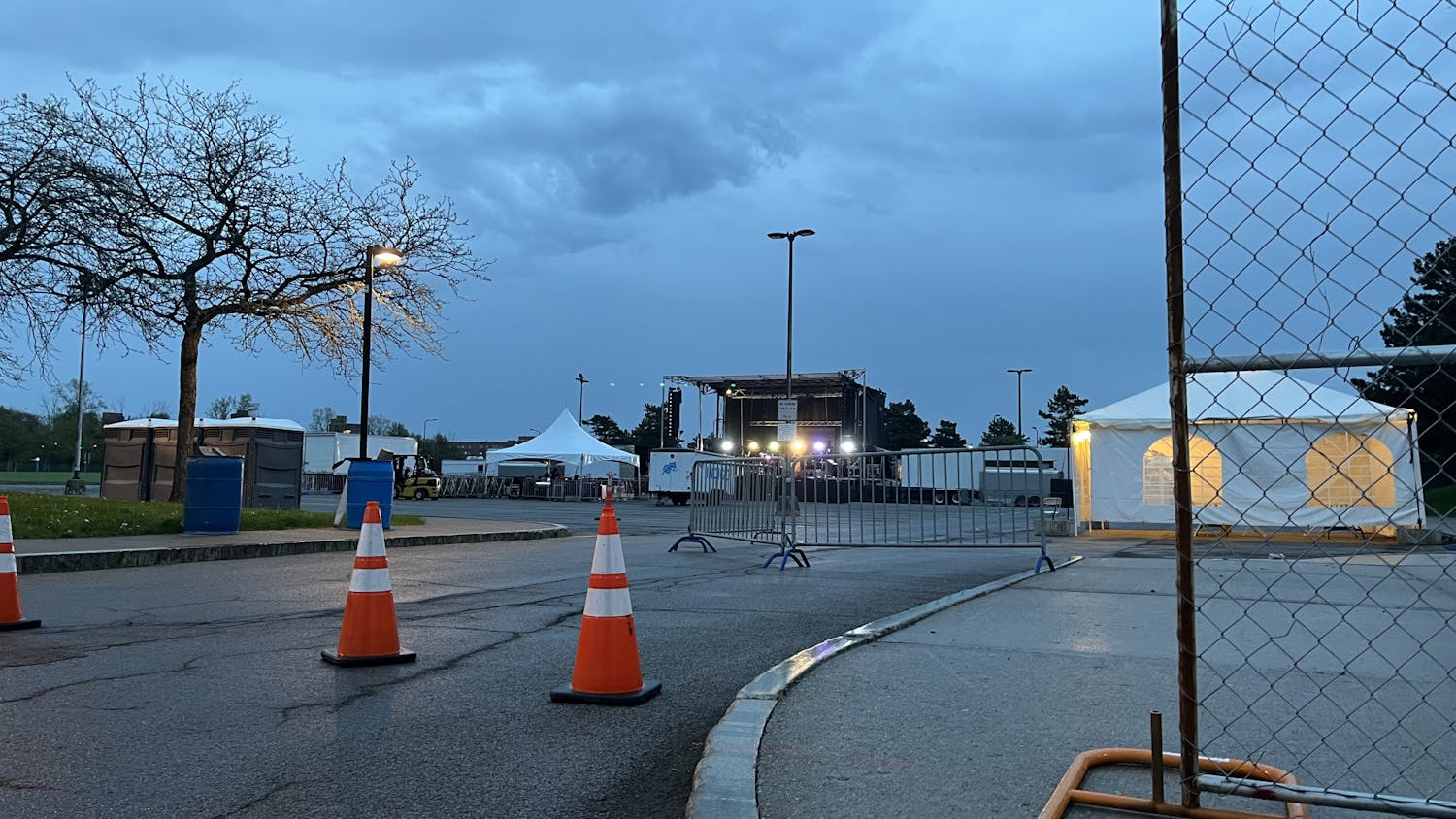Chief Justice of the Supreme Court John G. Roberts Jr. returned to his hometown of Buffalo to give a question-and-answer style lecture in the Koessler Athletic Center at Canisius College on Tuesday evening.
Quieting any conceptions of royalty that one might associate with such a figure, Roberts revealed himself to be a warm and approachable authority, true to his roots and at ease among the middle-American audience.
In the 90-minute lecture, Roberts spoke about wide-ranging topics such as the Court's hesitation to welcome technological change, his undergraduate education, and his own style in overseeing the Court, speaking with a clarity that reminded the audience why he holds the position he does.
After praising Roberts in his introduction, Joseph M. Hassett, an attorney and Canisius College trustee, joined Roberts on stage to present him with questions submitted by students, alumni and lawyers.
In response to one of the first questions regarding his style of managing the Court, Roberts noted that his office has traditionally been one of mediating, not ruling.
"One thing about the office of Chief Justice is that you hold the reigns of power very lightly," Roberts said. "If you pull on them, you might find that they're not attached to anything,"
Roberts did note, however, that his fellow justices informed him that he doesn't run as quite a "tight ship" as his predecessor, William Rehnquist.
"My colleagues tell me I let the discussions go on a little longer – I'm sure some of them think a little too long – in some cases," Roberts said. "And we have a rule: nobody speaks twice until everybody [has] spoken once."
In a later question, Roberts explained his intentions in writing his opinions, a task he felt involved a delicate balancing of technical accuracy and accessibility.
"I try to write for an audience of intelligent lay people," Roberts said "I want people who are not necessarily lawyers to be able to pick up an opinion and read it. I want them to be able to understand what the case is about, understand what we decide, and understand why."
Jokingly, Roberts emphasized why he felt it was so important for the Court to justify decisions they reach in the simplest terms possible.
"You don't get to elect us, and if you don't like what we're doing…too bad," Roberts said. "We have to explain to you why we decide what we decide so you can look at it and see and decide for yourself."
Roberts later commented on the proposal of broadcasting the oral arguments before the court. Although the tapes of the Court's decisions have recently been made available just three to five days after the case is closed, justices are wary of making changes too quickly.
"You know, it's a tough question," Roberts said. "The court moves very slowly in responding to technological change. All of us want to [proceed] very carefully. We don't want to do something that we think might harm the institution."
In response to one question that had been submitted by several students, Roberts explained that it was surprisingly easy to keep his personal moral views from affecting his decisions.
"It's something lawyers do all the time," Roberts said. "[In the conference room], we don't have books of moral philosophy [or] religious texts. Those just aren't materials we look at. We look at the laws."
Some of the Chief Justice's other comments during the night included an explanation of his method for hiring court clerks with Krispy Kreme doughnuts, the little impact fame has had on his life thanks to his relative obscurity next to Judge Judy, and the importance of a liberal arts education in preparing for law school.
Roberts opened up the floor to questions from the audience, a change to the night's original plans, after Hasset finished presenting the submitted questions.
One audience member's question that got a laugh from Roberts and the crowd concerned the lengthy legal agreements people are required to accept before making most purchases online.
"As the head of the Supreme Court, my question is, can you actually understand and read [the legal agreements]?" the audience member asked.
Roberts admitted that while he probably should, he did not.
For some of the questions for which his answers would have been seen as reflecting his opinions on cases before the Court, Roberts was obliged to respectfully decline comment.




